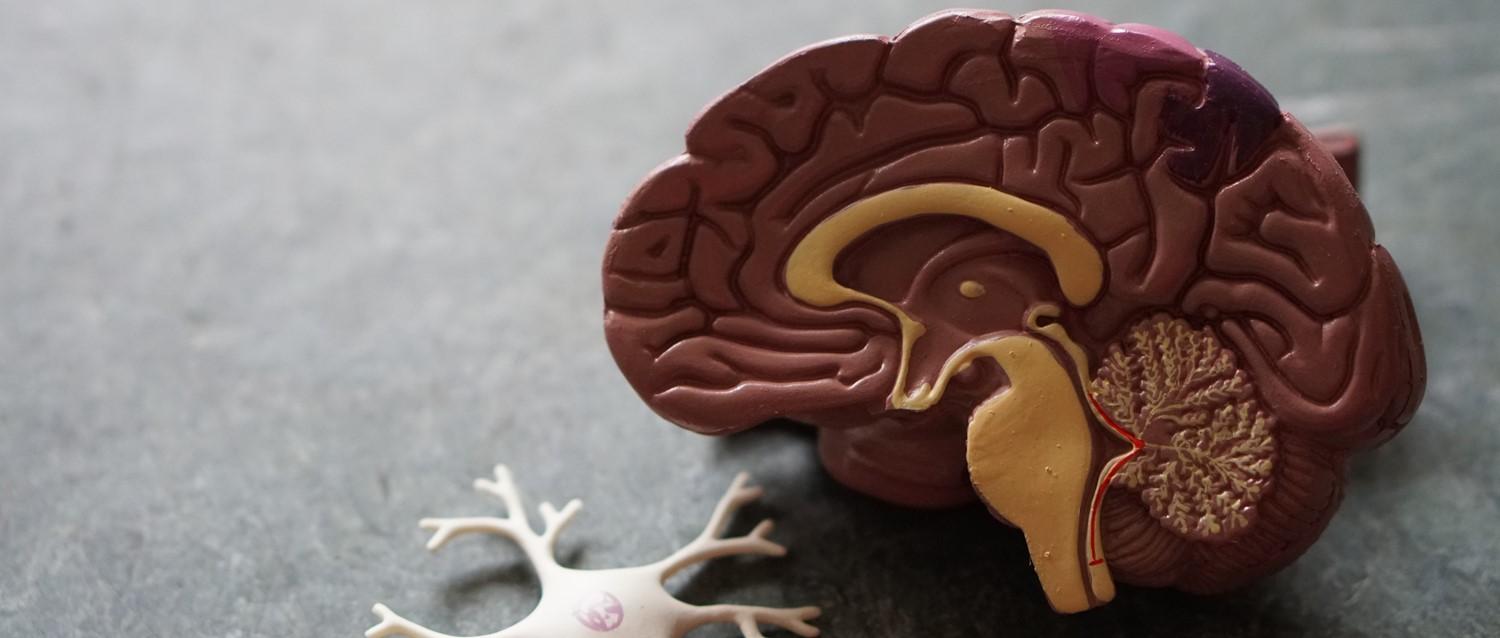
How MS can affect mental health
Peer reviewed by Dr Sarah Jarvis MBE, FRCGPLast updated by Lydia SmithLast updated 27 Nov 2018
Meets Patient’s editorial guidelines
- DownloadDownload
- Share
- Language
- Discussion
More than 100,000 people in the UK are estimated to have multiple sclerosis, a lifelong condition which impacts the central nervous system, causing problems with mobility, vision, coordination and sensation. Although the symptoms are physical - such as fatigue, difficulty walking, blurred vision and problems with thinking, learning and planning - MS can have a serious impact on mental health too.
In this article:
Emily Thurston, 36, was diagnosed with MS in 2010 and frequently blogs about living with the condition at The Wibbly Dinosaur. She has also written about having depression and the emotional strain of living with chronic illness.
"The main problem I have is with mobility and I really do struggle to walk very far at all. As a bit of a fitness fanatic that was the hardest thing. I used to do a lot of walking and cycling and go to the gym every day," she says.
"I have a lot of numbness, pins and needles, spasticity, blurred vision, which can be scary, and fatigue. I can't think of anything it doesn't affect really."
Thurston also struggles with bladder control, a symptom of MS, which can cause her anxiety.
"It makes me scared to go to places in case I'm going to wet myself in public," she says. "You have the worry that because you don't look disabled and you need to use a disabled toilet, people are judging you."
Continue reading below
What is MS?
MS is a condition that affects the brain and spinal cord. In multiple sclerosis, the coating that protects the nerves becomes damaged which causes a wide range of symptoms.
It's what is known as an autoimmune disorder, in which your own immune system turns on part of your body. Nobody knows exactly what causes the condition, but researchers believe it is a combination of different factors, including your genetic makeup and triggers in the environment. Up to three times as many women as men are affected by MS.
Dr Susan Kohlhaas, director of research at the MS Society, says the emotional effects of MS often go undiagnosed, but it is not unusual for people with the condition to experience depression, stress or anxiety.
"A variety of factors can contribute to these emotional changes, with some directly related to MS and some not. Being diagnosed itself may lead to a whole array of emotions such as grief, anxiety, guilt, fear, irritation and anger," she explains.
"Coping with MS and adapting to the changes and uncertainty it brings can also affect a person's mental health - but everyone reacts differently."
Due to the complexity of the conditions and the wide range of symptoms, MS is not easy to diagnose - so the process may be long and frustrating.
There is also no right way to feel when being diagnosed with MS. For some, it may be distressing and frightening, but others may feel numb or in shock, or feel relief at having their symptoms explained. It is common to feel grief after being diagnosed.
It can be challenging to adapt to living with MS and it can also put pressure on different aspects of your life, from your finances to your relationships, which can lead to stress and anxiety. Yet with the right care and support, many people with MS lead healthy, active and long lives.
Other factors
MS-related nerve damage may also affect someone's mental health.
"The brain controls every action by sending messages to different parts of the body, and different parts of the brain control different things," Kohlhaas says. "MS can affect the way we walk, move, see, think, and feel, and where you have nerve damage might impact what symptoms you experience.
"The frontal lobe is responsible for controlling emotions and how you express them so, regardless of your personality, if you have nerve damage in this part of the brain it could affect the way you feel and/or react to things."
This may lead someone to behave in ways that are uncharacteristic and in some cases, impact a person's mental health, she adds.
Like all drugs, medications used to manage symptoms of MS can come with side-effects which may impact mental health. "Some, such as steroids, have been known to cause temporary changes in mood or behaviour," Kohlhaas says.
Not everyone will experience negative side-effects, but if you do, your doctor can reassess your medication to find something that works for you.
There is no cure for MS, but there are a lot of ways to manage the symptoms - and your doctor will advise on the best option for you.
Continue reading below
Treatments
There are different types of the condition, the most common of which is called 'relapsing remitting MS' where the symptoms will flare up aggressively before abating. In primary progressive MS, the symptoms of MS get worse over time, rather than appearing as relapses. Secondary progressive MS is a stage of the condition which may occur after relapsing remitting MS, when the symptoms gradually worsen.
The relapsing form of the condition is often treated with 'disease-modifying therapies' - or DMTs - which are different drugs that can reduce the number of relapses someone has, or how serious they are.
Haematopoietic stem cell transplantation (HSCT) is an intense chemotherapy treatment which may be suitable for some MS patients. It aims to stop the damage MS causes, by wiping out and then regrowing your immune system, using your stem cells.
Treating specific symptoms
There are many different treatments to help manage the specific symptoms of MS, such as physiotherapy. A physiotherapist may help someone with MS find exercises to treat and manage specific problems such as difficulties with mobility, balance and posture. It can also help problems such as muscle spasms, pain and stiffness. Certain medications may be prescribed for symptoms such as visual problems, fatigue or pain.
Some people may benefit from complementary and alternative medicines, which are - generally speaking - therapies that are not included in 'mainstream' medical care. For example, herbal medicines. It's not known how effective these are, but some people say they make them feel better.
There are a lot of self-management courses which teach people skills to live well with MS. The MS Trust and Self Management UK have more information on these courses.
Continue reading below
Lifestyle
Keeping active can help with many MS symptoms, such as pain, as well as improving someone's quality of life and mental health. Research has shown exercising also improves our cognitive ability, benefiting memory and learning skills. Finding the right type of exercise is key, which might mean staying seated or trying gentler exercises. There are also exercise videos specifically for people with MS.
Managing stress can help improve well-being too, which might mean planning ahead, recognising triggers and trying relaxation techniques such as meditation. Self-care is important too, which can mean taking time to pamper yourself or spending time doing activities you enjoy. Speaking to others about your fears or anxieties or writing them down can also help.
Thurston says blogging helps her cope with the stresses of living with MS.
"A lot of people have told me it makes them feel less alone," she adds.
Professional help
If you are struggling with your mental health, your GP will be able to advise on the best course of action for you. This might mean talking therapies, such as psychotherapy or cognitive behavioural therapy (CBT), or medication.
Thurston says she has been on antidepressants for the last seven years, which have helped keep her mood stable.
"I see a counsellor now and she has really helped me," she says. "It’s not all about my MS, but it helps me cope with the anxiety that comes with MS."
Support
Getting the right help and support is essential and there are lots of ways to do this, whether it is speaking to friends or family, or to others living with MS.
"For anyone experiencing difficulties, medication, talking therapies and self-help techniques can all make it easier to cope, and the MS Society has a free helpline on 0808 800 8000," Kohlhaas says.
The charity also has an online community with thousands of members, as well as local groups which have regular meetings. The MS Trust also provides information and can help you find local and online support groups.
Patient picks for Limb weakness and numbness

Brain and nerves
Are new treatments for MS on the horizon?
130,000 people in the UK are living with multiple sclerosis (MS). Though there are treatments which can ease and help to manage symptoms, MS is a condition which has no cure. But now, a groundbreaking trial is trying to find new treatments which could revolutionise care for people with MS.
by Ellie Broughton

Brain and nerves
Causes of peripheral neuropathy: from diabetes to vaccines
Neuropathy - also called peripheral neuropathy - can affect anyone but is more likely to develop as your age increases. In the UK, almost one in 10 people aged over 55 years have it. There are many possible causes of peripheral neuropathy, ranging from the most common to the very rare.
by Amberley Davis
Continue reading below
Article history
The information on this page is peer reviewed by qualified clinicians.
27 Nov 2018 | Latest version

Ask, share, connect.
Browse discussions, ask questions, and share experiences across hundreds of health topics.

Feeling unwell?
Assess your symptoms online for free
Sign up to the Patient newsletter
Your weekly dose of clear, trustworthy health advice - written to help you feel informed, confident and in control.
By subscribing you accept our Privacy Policy. You can unsubscribe at any time. We never sell your data.